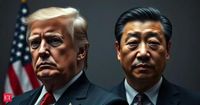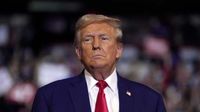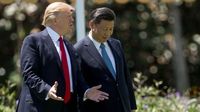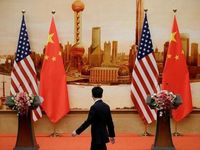In a dramatic escalation of trade tensions, China now faces tariffs as high as 245% on its imports to the United States, a significant increase that follows retaliatory actions taken by Beijing. This increase comes at a time when U.S. President Donald Trump has enacted a series of tariffs aimed at addressing what he describes as unfair trade practices and a substantial trade deficit with China.
On April 15, 2025, the White House confirmed that these tariffs are a direct result of China's countermeasures against the U.S. tariffs, which had previously been set at 145%. According to a fact sheet released by the administration, the escalating tariffs reflect a broader strategy by the Trump administration to impose reciprocal tariffs on various countries with which the U.S. has trade deficits.
President Trump has also paused these tariffs for 90 days for over 75 countries that are negotiating new trade agreements with the U.S., but notably, China is excluded from this pause due to its retaliatory stance. During a recent press briefing, White House Press Secretary Karoline Leavitt emphasized that the responsibility lies with China to negotiate a deal, stating, "The ball is in China’s court. China needs to make a deal with us; we don’t have to make a deal with them."
In response, Chinese Foreign Ministry spokesperson Lin Jian criticized the U.S. approach as counterproductive, insisting that dialogue must be rooted in mutual respect and equality. Lin remarked, "If the United States truly wants dialogue, it must first stop exerting maximum pressure." He reiterated China's commitment to collaboration and the elimination of trade barriers, expressing that, "In a world full of uncertainties, China remains committed to joining hands, not throwing punches; removing barriers, not erecting walls; promoting connectivity, not pursuing decoupling."
The escalating tariffs have already begun to impact various sectors. For instance, syringes and needles exported to the U.S. from China now face a staggering 245% tariff, while lithium-ion batteries are subject to a 175% tariff. Other products, including squid and wool sweaters, have also seen significant increases in tariffs, with rates reaching as high as 170% and 169%, respectively.
In light of these developments, California Governor Gavin Newsom announced that the state is filing a lawsuit against President Trump’s tariffs, arguing that they are detrimental to both consumers and businesses in California, which boasts the world’s fifth-largest economy. Newsom's legal action underscores the growing concerns among states about the economic impact of federal trade policies.
As tensions continue to rise, Trump is reportedly crafting a global strategy to isolate China economically by offering tariff relief to countries that reduce their trade ties with Beijing. This proposed framework would involve the U.S. encouraging over 70 countries to stop purchasing cheap Chinese goods and prevent Chinese firms from circumventing tariffs through third-country registrations. Such a move could significantly alter global trade dynamics and compel countries to choose between engaging with the U.S. or China.
The ramifications of these trade hostilities extend beyond just tariffs. Financial markets have reacted negatively to the uncertainty surrounding U.S.-China relations, with significant declines observed in global markets, including sharp drops in Asia and Europe. Moody's Ratings recently reported that U.S. tariffs will weaken credit conditions and increase default risks, particularly for low-rated and speculative-grade corporates. The report warns that an unpredictable U.S. trade policy could lead to a deterioration in global credit conditions and slow economic growth, raising the possibility of a recession.
Despite the ongoing tensions, the U.S. is not alone in facing the fallout. China's economy is also under strain from these escalating trade tensions, with Moody's noting that the export sector faces severe challenges and that business and consumer sentiment in China is likely to suffer as a result. Even if the current escalation eases, U.S.-China relations are expected to remain contentious, posing a significant setback to the Chinese government's efforts to boost consumption and encourage private sector growth.
In a related development, Japan is set to begin in-person tariff negotiations with the United States, becoming one of the first nations to test Washington's willingness to ease trade duties. Japanese officials will discuss not only tariffs but also energy cooperation and exchange rates with U.S. representatives. Meanwhile, the Chinese Embassy in India has issued over 85,000 visas to Indian citizens in an effort to strengthen cultural and diplomatic ties, even as global trade tensions escalate.
As the world watches these developments unfold, it remains clear that the stakes are high for both the U.S. and China. The outcome of these trade negotiations could reshape global economic relations for years to come, with implications that extend far beyond tariffs and trade balances.







